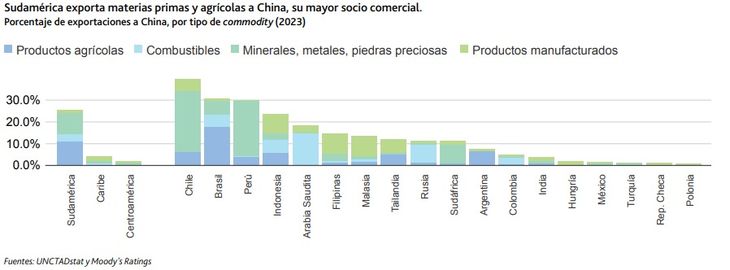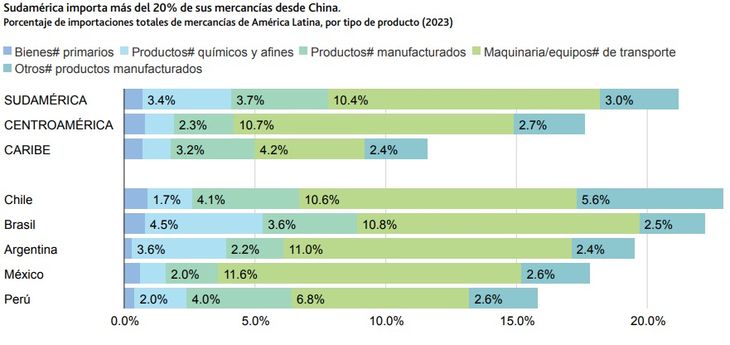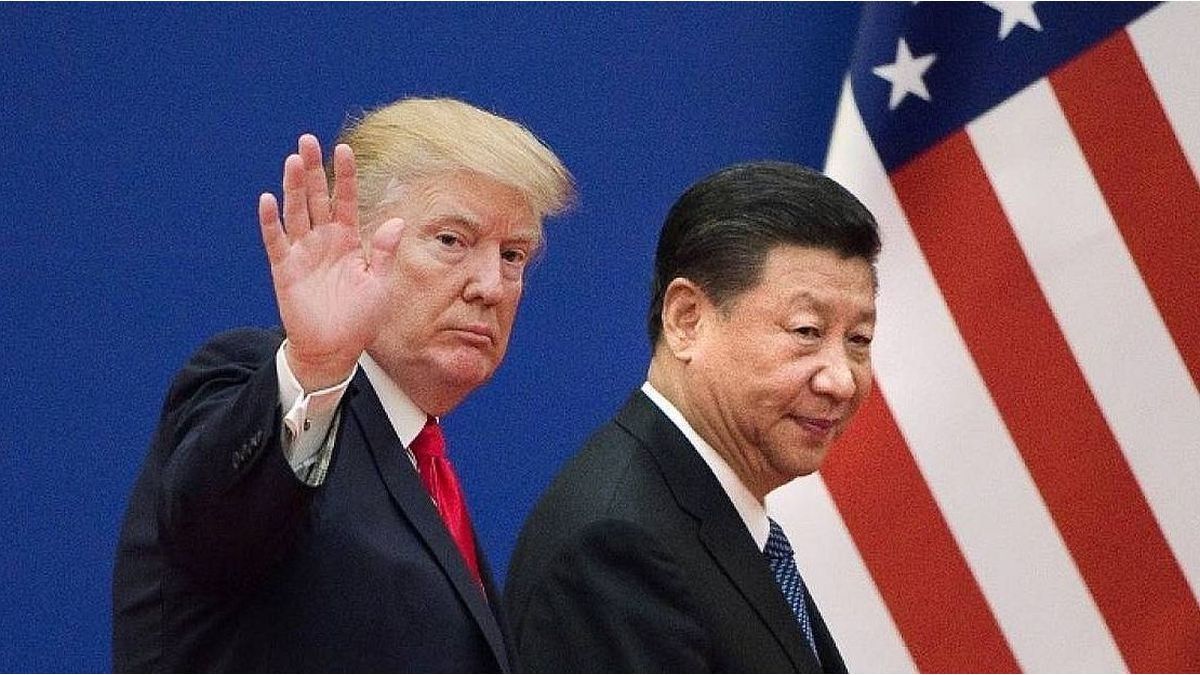USA It is a key trading partner for most countries in Latin America. Trade policies to be adopted by the next presidentwhether openness or protectionism, will impact the volume of Latin American exports, especially in the agricultural and manufacturing sectors. In Argentina, sectors such as lithium, which is booming, could be boosted if the northern country expands its investment in clean energy. There is also talk of a “helping hand” in case of a crisis. Donald Trump return to the White House, due to their alleged affinity with Javier Milei.
This is relevant ahead of the country’s presidential election in November, given that the region has benefited from its relationship with both the US and China. However, one driver that worries investors is that if the US-China relationship deteriorates further, There could be pressure on Latin American countries to choose between the two powers, which would complicate economic and strategic relations in these latitudes.
In this context, the risk rating agency Moody’s issued a report addressing the most important aspects of the US’s unchangeable policies towards the region, as well as its approach, regardless of who wins the election: Donald Trump or Kamala Harris.
First of all, it should be noted that, for Moody’s, the next US administration, whether led by Harris or Trump, “will maintain a protectionist trade policy and a stricter stance on immigration issues“And although both candidates have very different economic and fiscal policy proposals, it is expected that these two areas will remain key points in their administration, without being conditioned by who wins the elections on November 5.
US trade policy
On the trade front, Moody’s expects the next government to “regardless of who the winner is“China will continue to seek to counter the growing dominance of the Asian giant, especially in strategic sectors and global supply chains. “China’s trade with Latin America, as well as its investments in infrastructure and renewable energy, will lead to increased tensions with the United States,” the document warns.
Moodys.jpeg
Should Harris win, she is expected to maintain Joe Biden’s targeted tariffs and seek to strengthen relations with allies. “In contrast, Trump is likely to would adopt more general trade policies that could lead to international retaliationaffecting global growth, accelerating inflation and decreasing demand for Latin American exports,” the rating agency said.
Immigration: Mexico and Central America in the spotlight of the campaign
Immigration will be another key issue, with both candidates promoting policies that limit unauthorized border crossings and reduce the number of granted asylum applications. The document predicts that Harris will support stricter border control measures and work to make it easier for immigrants already in the country to obtain legal permanent residency.
On the other hand, “Trump could adopt a more aggressive approach, which would include increasing deportations or imposing new trade sanctions on Mexico if migration flows cannot be reduced, which which would generate political uncertainty and hinder trade flows and investment,” he analyses.
And immigration control is a priority for both the Biden administration and the Central American and Mexican governments, which led to a significant reduction in illegal border crossings. As of July 2024, illegal crossings at the US southwest border decreased by 75% from their peak in December 2023.Mexico also intensified its immigration control measuresarresting more than 715,000 migrants in the first half of 2024,” the report said.
The energy transition
On this issue, the study argues that it is likely that Harris to continue Biden administration’s environmental policieswhich includes promoting investment in renewable energy and reducing the carbon footprint. Meanwhile, it should be remembered that Trump promised to reverse several of these policies and give priority to the fossil fuel industry.
Moodyss.jpeg

Despite these differences, Moody’s argues that the transition to a low-carbon economy will continue to advance, driven by the private sector, state mandates and consumer preferences. However, he indicates that if the US does not actively engage in this transition, it would lose the opportunity to deepen its trade ties with Latin America and “countering China’s growing influence in the region“.
And as the rating agency rightly maintains, China has strongly increased its investment in Latin America, focusing on infrastructure, green technology and key sectors such as electric vehicles and renewable energy. In this sense, countries such as Chile, Peru, Brazil, Mexico, Argentina and Uruguay They became key partners for China, both in terms of trade and investment in clean energy.
“Although South America has increased its trade with China, the United States remains the main partner of Mexico, Central America and much of the Caribbean. Mexico, in particular, has become essential to the ‘friendshoring’ strategy of The US is seeking to strengthen North American supply chains and reduce dependence on China“, the document states.
The US needs to collaborate with America and Europe
Finally, the paper concludes that if a new US administration, whether Harris or Trump, wishes to encourage private investment in the energy transition and climate adaptation, “will need to expand both public and private resources, working in collaboration with allies in the Americas and Europe“and strengthen the role of international financial institutions in Latin America.
This would ensure that projects are adequately prepared.strong regulatory frameworks and a favorable operating environment, which would allow the US to compete more effectively with China’s growing influence in the region.
Moody’s is clear in its assessment: The result of the US elections will not bring a drastic change in the political situation for Latin AmericaBut economically, the hemisphere’s leading power remains firm in its aim to counter China’s growing influence in the region.
Therefore, A return of Trump to power could exacerbate trade and migration tensionsincreasing the risks to political and economic stability. A Harris victory, albeit with a more collaborative approach, It would also involve challengesin particular, the need to redefine strategic alliances and face competition from the Asian giant.
Source: Ambito
I am an author and journalist who has worked in the entertainment industry for over a decade. I currently work as a news editor at a major news website, and my focus is on covering the latest trends in entertainment. I also write occasional pieces for other outlets, and have authored two books about the entertainment industry.




